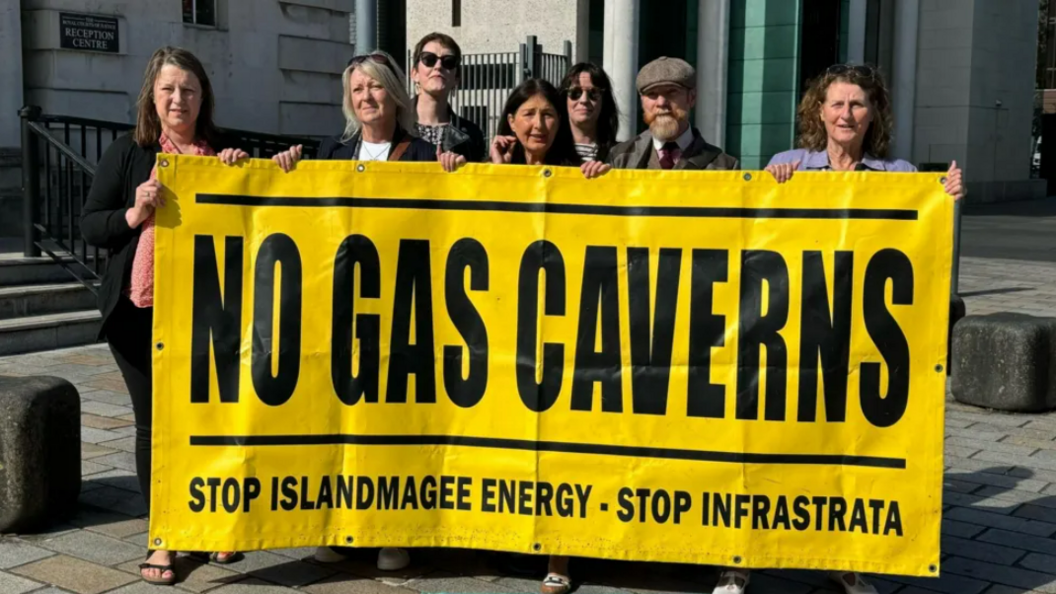What next for NI’s major fossil fuel projects?
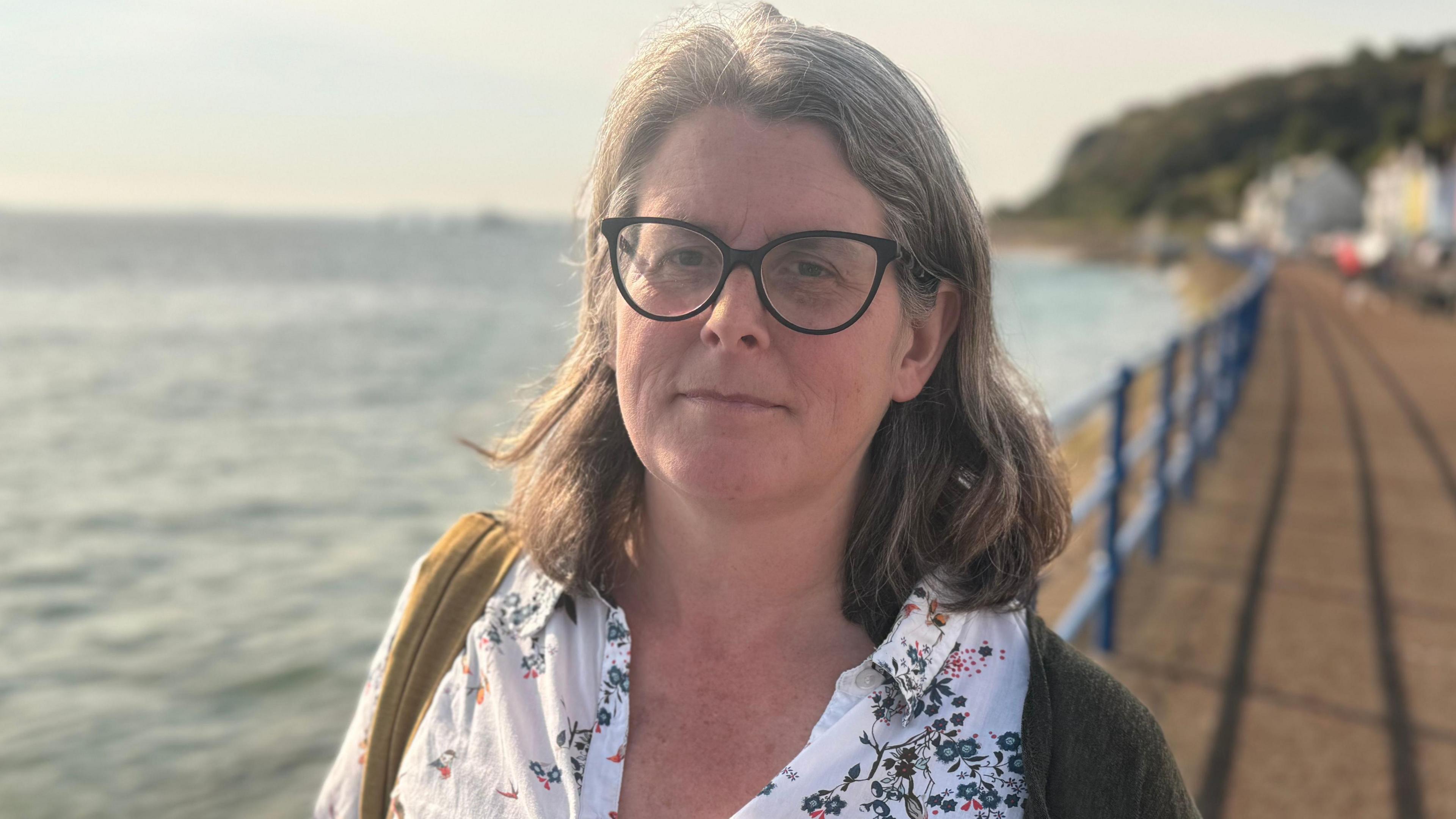
Clodagh Miskelly won her legal challenge over plans to expand an oil terminal in Whitehead
- Published
Earlier this month, Clodagh Miskelly won her legal action to halt a multi-million pound expansion of an oil terminal on the shores of Belfast Lough.
Approval for the Cloghan Point facility plans in Whitehead had been granted by Mid and East Antrim Council in April.
This is one of three large-scale fossil fuel applications in the council area where permission has been quashed.
But what does this all mean for the future of fossil fuel projects in Northern Ireland?
Ms Miskelly was one of many from the Stop Whitehead Oil Terminal (SWOT) campaign group to object to the proposal and later launched a legal challenge against the council's plans.
The decision was quashed by Belfast High Court after the council decided not to contest the case.
"We've got a stay of execution, but really what we want is for the execution to be cancelled," Ms Miskelly told BBC News NI.
"We're back to the point we were a year ago, where the council are now reconsidering the application, re-determining the application," she explained.
"Now the council has an opportunity to consider all the grounds that we've raised, all the concerns that we have raised through this process.
"And the situation has changed as well."
That situation is the decision by the Supreme Court in two other fossil fuel applications in England.
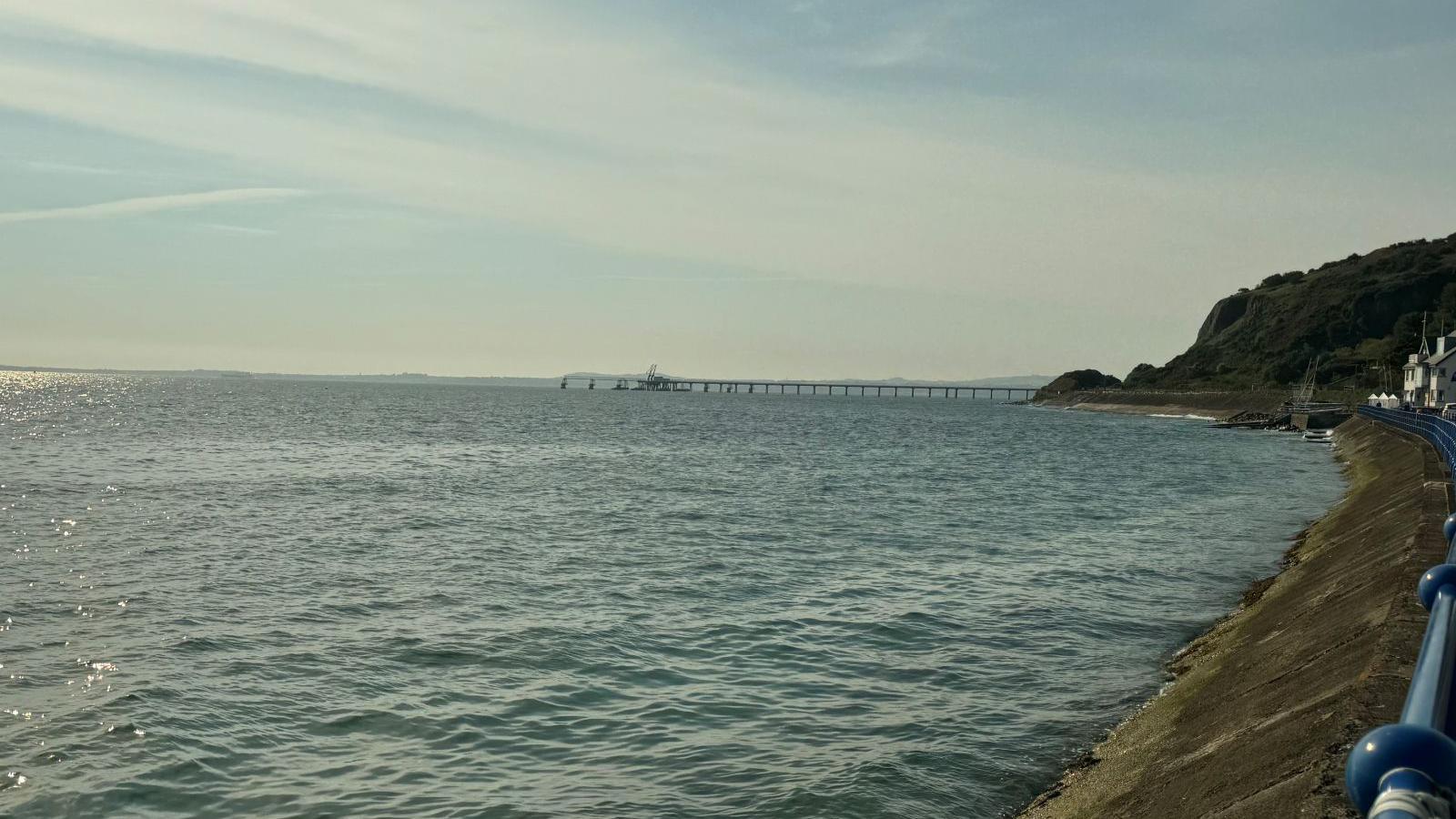
Plans to expand the Cloghan Point facility were approved by Mid and East Antrim Council in April 2024
One, brought forward by Sarah Finch against Surrey County Council, found the council should have considered the full climate impact of burning oil from new wells.
The other saw plans to build the UK's first deep coal mine in more than 30 years quashed.
The Supreme Court said decisions on all such applications must consider "downstream emissions" - not just the impact of construction, but the effect of emissions from combustion of the fossil fuel.
Mid and East Antrim Council is now reconsidering the application after it failed to hold a pre-determination hearing as part of the decision-making process.
But these wider rulings raise questions for a number of applications currently in the system in Northern Ireland.
What are these applications?
Three large-scale applications in the Mid and East Antrim Borough Council area have had permissions quashed.
The one Ms Miskelly took on was at Cloghan Point - an application to expand a oil terminal in Belfast Lough.
In a statement, the council said permission had been "quashed by consent on the limited ground that pre-determination hearings were not held in connection with the application".
It added that "no order was made as to the remaining grounds of challenge for judicial review".
It is now reconsidering the Cloghan Point application.
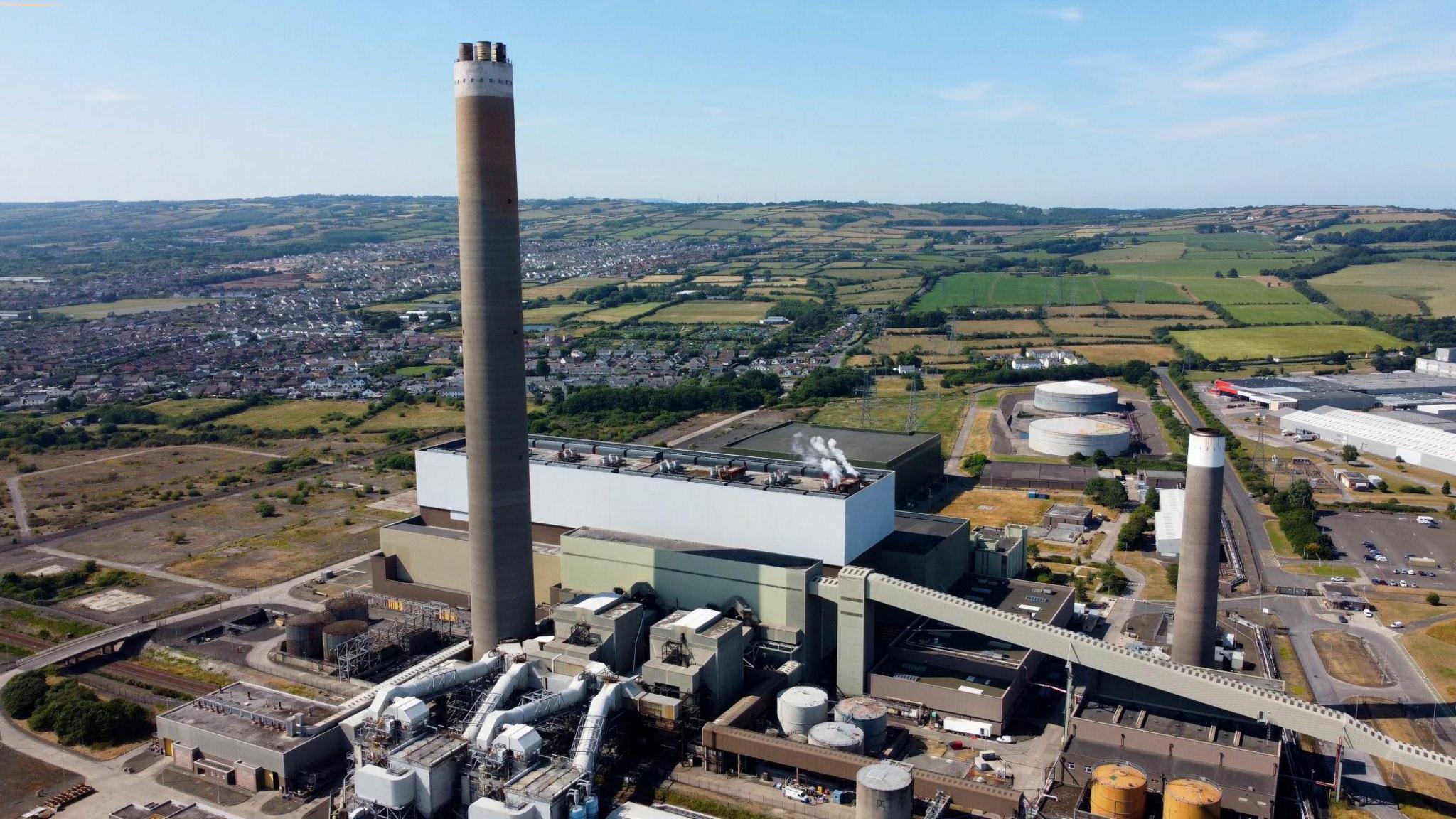
Kilroot Power Station, close to Carrickfergus, is another facility which saw expansion plans quashed
Another application for expansion of Kilroot Power Station was quashed the same day, for the same reason that the council had missed out a step in the decision-making process.
And a third project, to carve out seven large caverns under Larne Lough to store natural gas, was returned to the Department of Agriculture, Environment and Rural Affairs (Daera) when the court decided it was cross-cutting and should have been referred to the Stormont Executive.
Daera is currently seeking leave to appeal that decision to the Supreme Court.
Supreme Court effect
Planning permission in these applications was granted before the Supreme Court ruled in either of the cases in England.
But James Orr, from environmental campaign community Friends of the Earth NI, believes the court rulings will have a huge impact.
"The courts will look at the downstream emissions, in other words, the burning of coal, oil and gas, rather than just the construction of the project itself in terms of its climate emissions," he said.
"Now that's logical to me.
"It's very sensible, but in terms of the shift towards climate litigation reflecting what we call climate justice, we think that Finch on top of these decisions in Northern Ireland will make it virtually impossible for new fossil fuel infrastructure to be developed anywhere in Northern Ireland."

James Orr said the rulings in England sets important precedents for Northern Ireland
Cases against all three applications were led by community campaigners, assisted by different organisations.
Ms Miskelly's judicial review was supported by Maria McCloskey from Public Interest Litigation Support.
She said Northern Ireland's net zero climate targets - to reduce greenhouse gases emissions - must now be part of decision-making.
"It is the importance that we see of community groups holding the decision makers to account and in relation to how they process these planning applications, particularly in a climate emergency," she added.
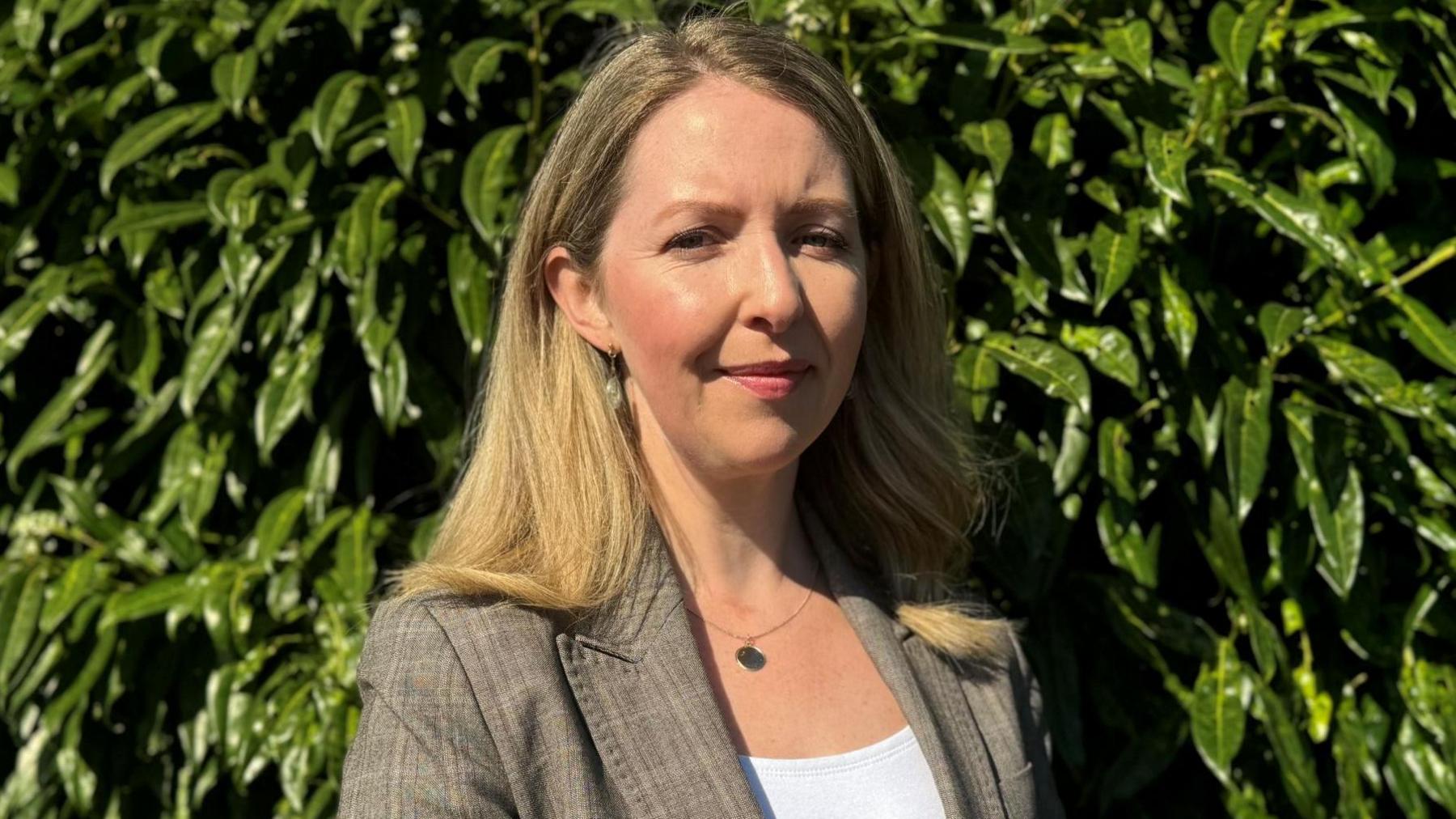
Maria McCloskey supported Ms Miskelly's legal bid
Ms McCloskey said in light of legislation highlighting targets which need to be met and for government departments to work together, "it is on all of us to make sure that these decisions are properly processed".
"The climate is everybody's climate," she said.
"It doesn't stop at borders, and it has huge implications for everyone."
- Published9 September 2024
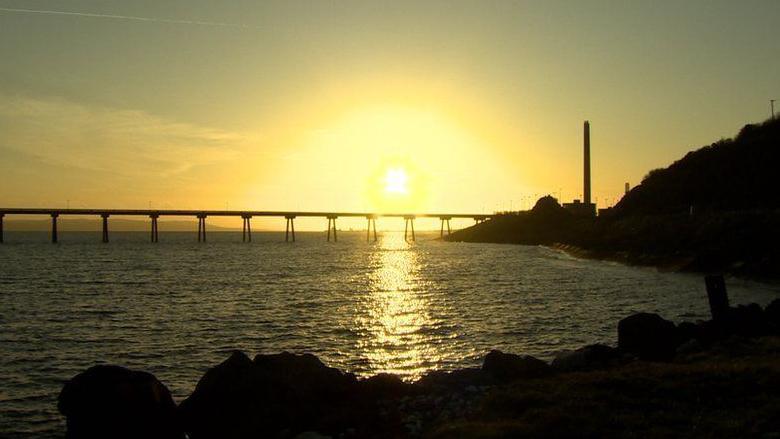
- Published14 April 2023

- Published27 June 2024
